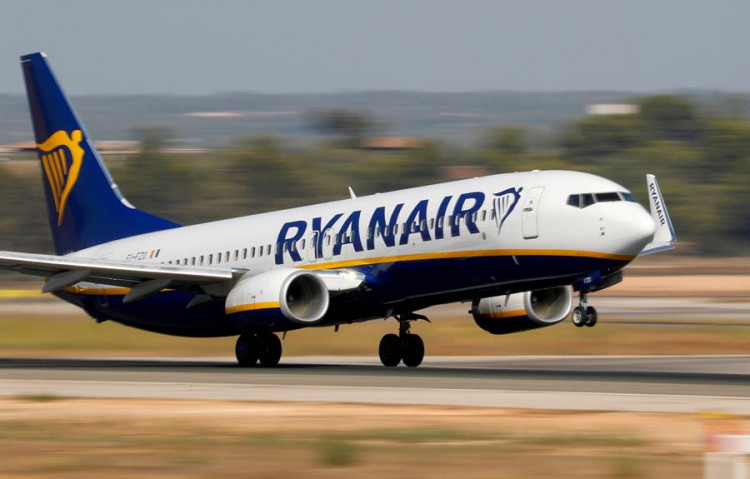Ryanair's shares have taken a significant hit following the announcement of a steep decline in its fiscal first-quarter profit. The Irish low-cost airline reported a 46% drop in profit after tax year-over-year, leading to a plunge in its stock by more than 15% early Monday morning. The airline's first-quarter profit fell to €360 million ($392 million), a substantial drop from the €538 million forecasted by analysts.
The company attributed the decline to a 15% decrease in average fares during the April-to-June quarter compared to the same period last year. This reduction brought the average fare down to €41.93 ($45.65) from €49.07 ($53.42). Ryanair's CEO, Michael O'Leary, noted that the timing of the Easter break this year, which partly fell in March, contributed to the lower fares.
"While Q2 demand is strong, pricing remains softer than we expected, and we now expect Q2 fares to be materially lower than last summer," O'Leary said in a statement, referring to the crucial July-September period. This is a shift from the airline's previous expectation that fares would be "flat to modestly up."
Ryanair's CFO, Neil Sorahan, echoed these concerns in a call with investors, noting a "bit of push back" on fares from consumers who are spending more cautiously. This caution among consumers, coupled with the ongoing effects of the COVID-19 pandemic, has created a challenging environment for the airline.
Despite these setbacks, Ryanair saw a 10% increase in passenger numbers, reaching 55.5 million in the first quarter. However, the increased passenger numbers were not enough to offset the decline in fares. The airline's shares were trading more than 15% down at 6:20 a.m. ET, with other European airlines also feeling the impact. Shares in British carrier EasyJet fell by 8%, and IAG, the parent company of British Airways, saw a 4.4% decline.
The profit slump and lower fare expectations contrast sharply with Ryanair's warning five months ago that it might have to raise fares by as much as 10% during the summer. This earlier forecast was partly due to delays in aircraft deliveries from Boeing, which has faced multiple safety and quality concerns in recent months.
O'Leary stated that Boeing had recently informed him of further delays in 737 MAX deliveries, which will affect the airline's capacity in the peak summer months of 2025. These delays are a repeat of issues faced this year, which forced Ryanair to cut its summer traffic volumes.
The airline has traditionally relied on high last-minute fares to boost its profits. However, O'Leary reported that attempts to sell higher-priced last-minute tickets have failed, leading to further price resistance. "We are repeatedly seeing price resistance," he said, adding that Ryanair plans to "aggressively" advertise low fares to attract more passengers.
Chief Financial Officer Sorahan attributed the pricing weakness to consumers being "a little bit more frugal, a bit more cautious" and a "rebalancing" after two years of double-digit growth in fares. When asked when the weakness might end, Sorahan candidly responded, "Who knows?"





